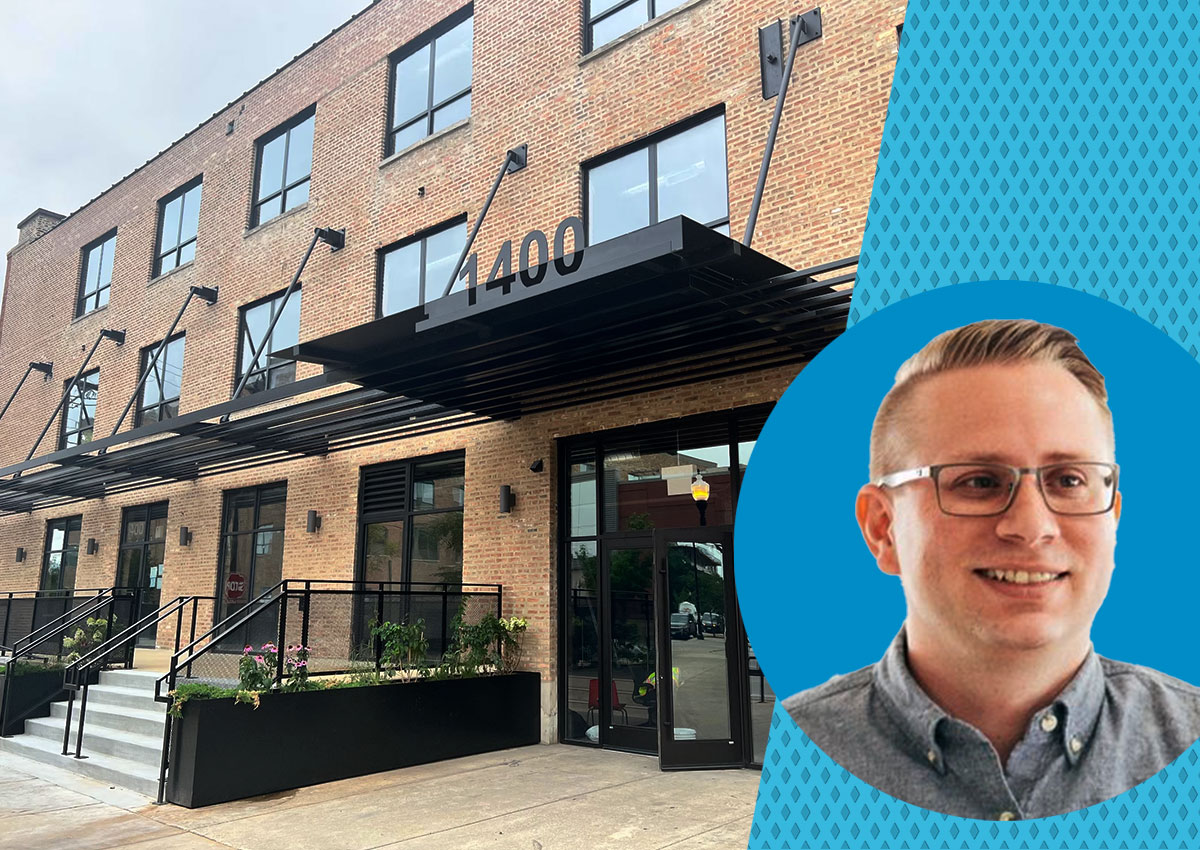
Chicago barware designer Leapfrog Brands is coming to Goose Island.
The company will double its 16,000-square-foot footprint at 1400 North Kingsbury Street and relocate its current Fulton Market headquarters to 159 North Racine Avenue. Liz McCleary of CBRE, which represents tenants in lease negotiations, said Leapfrog was growing and requiring employees to be in the office at least four days a week.
The three-story, 101,000-square-foot office loft is jointly owned by Goldman Sachs and Chicago-based developer R2 Corporation. Matt Duhig of R2, Abby McFadyen of Madison Rose, and Matt Pistorio, founder of Madison Rose and principal of R2, represented the building owner in lease negotiations.
Goose Island and Fulton Market are both bright spots in Chicago’s struggling office market, with their stylish spaces retaining tenants during the pandemic. They stand in stark contrast to the aging Loop office buildings, whose values have fallen sharply and vacancy rates are at record highs. Still, in recent weeks, the Fulton market has seen some tenants pull out and list sublease space.
Goose Island has always been positioned as a convenient office location without the hustle and bustle and super-high rents that Fulton Market has become a Chicago development hotspot. Meanwhile, the man-made island on the Chicago River, long entirely industrial, has become a hub for tech and design firms looking for boutique office space.
R2, which specializes in the adaptive reuse of aging industrial buildings, began buying properties on Goose Island in 2014, three years after the city approved a zoning change allowing residential and office development in parts of the area.
Late last year, the company signed leases for a total of 54,000 square feet of office space at three of its properties, including 22,000 square feet of office space at 1200 North Branch Street for technology company Azumo.
Return-to-office statistics and mandates offer some hope for Chicago offices, with the Windy City metro area leading the nation in June peak day office occupancy. The average one-week occupancy rate rose to nearly 55% last month, according to Kastle Systems. The back-to-office rules, publicly disclosed in May, affected more than 600,000 office workers across the country, according to JLL.







